Bahamas Emergency Care & Safety Institute
Emergency Response Training Courses
Blood & Airborne Pathogens Course
Upon completion of the Bloodborne Pathogens (BBP) and Airborne Pathogens (ABP) course, the student will learn various diseases that can be transmitted from person to person, whether directly, and/or indirectly, and from animal to human transmission. Infectious transmission routes, incubation periods, signs and symptoms of infection, and how to protect ones self from exposure using personal protective equipment (PPE’s). The student will also be taught the correct procedures on reporting BBP exposures in the workplace.
Course Outline
- Personal Protective Equipment (PPE)
- Safety Procedures
- HIV Transmission
- Hepatitis B Transmission
- Hepatitis C Transmission
- SARS
- Covid-19
- Influenza Virus
Final Exam: 25 Question Multiple Choice
Students successfully completing the course will receive a Bloodborne and Airborne Pathogens provider card.
Course Tuition: $30.00
Length of Course: 1 hour, 30 minutes
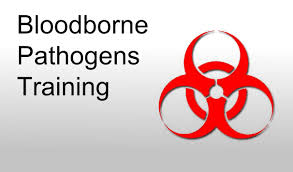
Use the form below to register for this course. A course coordinator will be in touch with you to assist you with your enrollment.
CPR & AED
Upon completion of the Cardiopulmonary Resuscitation (CPR), and Automated External Defibrillator (AED) course, the student will learn the procedures, and techniques necessary to attempt resuscitation of an Adult, Child, and Pediatric patient. The student will learn how to successfully operate an AED device as they attempt to resuscitate a patient.
Course Outline
- Personal Protective Equipment
- Dorning Gloves
- Scene Safety
- Accessing EMS (911)
- Use the Automated External Defibrillator
- CPR for Adult
- CPR for Child
- CPR for Infant
- Foreign Body Airway
Final Exam: 40 Question Multiple Choice
Students successfully completing the course will receive a CPR provider card from the Emergency Care & Safety Institute (ECSI).
Course Tuition: $60.00 (Includes Training and Study Materials)
Length of Course: 7 hour
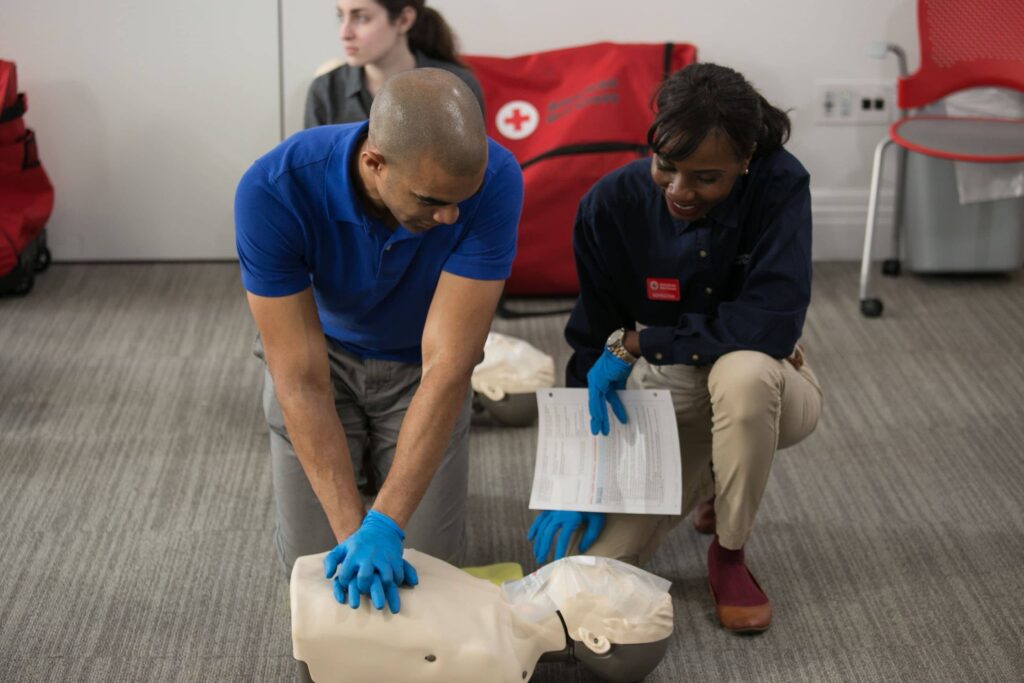
Use the form below to register for this course. A course coordinator will be in touch with you to assist you with your enrollment.
Basic Life Support
Upon completion of the Cardiopulmonary Resuscitation (CPR), and Automated External Defibrillator (AED) course, the student will learn the procedures, and techniques necessary to attempt resuscitation of an Adult, Child, and Pediatric patient. The student will learn how to use a bag-mask-valve device along with airway adjuncts to provide rescue breaths for apneic patients. The student will learn how to successfully operate an AED device as they attempt to resuscitate a patient.
Course Outline
- Personal Protective Equipment
- Dorning Gloves
- Scene Safety
- Accessing EMS (911)
- Airway Adjuncts (OPA & NPA)
- Use the Bag-Valve-Mask Device
- Use the Automated External Defibrillator
- CPR for Adult
- CPR for Child
- CPR for Infant
- Foreign Body Airway
Final Exam: 40 Question Multiple Choice
Students successfully completing the course will receive a CPR provider card from the Emergency Care & Safety Institute (ECSI).
Course Tuition: $68.00 (Includes Training and Study Materials)
Length of Course: 8 hour
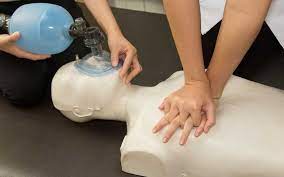
Use the form below to register for this course. A course coordinator will be in touch with you to assist you with your enrollment.
Standard First Aid
Upon completion of the Standard First Aid Course, the student will learn how to manage minor to moderate injuries, burns, animal , and insect bites and stings, splint injured extremities, and control bleeding from wounds.
Course Outline
- Review of CPR & AED
- Review of Bloodborne and Airborne Pathogens
- Scene Safety
- Accessing EMS (911)
- Lacerations
- Bandaging and Splinting
- Insects Bites and Stings
- Snake Bites
- Jellyfish Stings
- Managing Shock
Final Exam: 40 Question Multiple Choice
Students successfully completing the course will receive a CPR provider card from the Emergency Care & Safety Institute (ECSI).
Course Tuition: $68.00 (Includes Training and Study Materials)
Length of Course: 7 hour
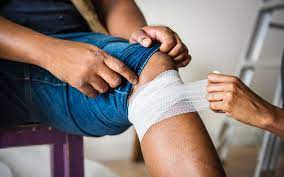
Use the form below to register for this course. A course coordinator will be in touch with you to assist you with your enrollment.
Advanced First Aid
Upon completion of the Cardiopulmonary Resuscitation (CPR), and Automated External Defibrillator (AED) course, the student will learn the procedures, and techniques necessary to attempt resuscitation of an Adult, Child, and Pediatric patient. The student will learn how to successfully operate an AED device as they attempt to resuscitate a patient.
Course Outline
Course Overview:
This advanced first aid course is designed to provide participants with the skills and knowledge to respond to a wide range of medical emergencies, including bleeding control, shock management, and cardiac arrest. The course covers advanced techniques and concepts, including the use of advanced airway management devices and epinephrine auto-injectors.
Course Outline:
Module 1: Introduction and Review
* Introduction to advanced first aid
* Review of basic first aid principles
* Legal considerations for first aid providers
Module 2: Bleeding and Shock
* Bleeding control techniques
* Tourniquet application
* Hemostatic agents
* Shock management and recognition
* Hypovolemic shock treatment
Module 3: Airway Management
* Advanced airway management techniques
* Use of bag-valve-mask (BVM) devices
* Use of advanced airway management devices (e.g. nasal pharyngeal airways, oral pharyngeal airways)
Module 4: Cardiac Arrest and AED Use
* Cardiac arrest recognition and management
* Automated External Defibrillator (AED) use
* Care of the cardiac arrest patient
Module 5: Medical Emergencies
* Recognizing and managing medical emergencies, including:
+ Diabetic emergencies
+ Allergic reactions
+ Epinephrine auto-injector use
+ Stroke and transient ischemic attack (TIA)
Module 6: Trauma Care
* Trauma assessment and management
* Spinal injury recognition and management
* Burns and burn care
Module 7: Specialty Topics
* Pediatric and geriatric considerations in first aid
* Environmental emergencies (e.g. heat and cold illnesses)
* Terrorism response and CBRNE (Chemical, Biological, Radiological, Nuclear, Explosive) awareness
Module 8: Final Assessment and Scenarios
* Written and practical final exam
* Scenario-based training exercises
Course Duration: Approximately 16-20 hours
Certification: Upon successful completion of the course, participants will receive a 2-year certification in Advanced First Aid.
Final Exam: 40 Question Multiple Choice
Students successfully completing the course will receive a CPR provider card from the Emergency Care & Safety Institute (ECSI).
Course Tuition: $100.00 (Includes Training and Study Materials)
Length of Course: 16-20 hours
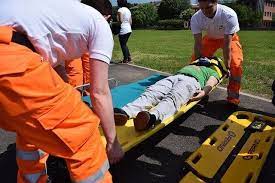
Use the form below to register for this course. A course coordinator will be in touch with you to assist you with your enrollment.
Emergency Medical Responder
Upon completion of the Cardiopulmonary Resuscitation (CPR), and Automated External Defibrillator (AED) course, the student will learn the procedures, and techniques necessary to attempt resuscitation of an Adult, Child, and Pediatric patient. The student will learn how to successfully operate an AED device as they attempt to resuscitate a patient.
Course Outline
I. Introduction to EMR
* Role and responsibilities of an EMR
* Medical/legal aspects of EMR response
II. Patient Assessment
* Initial patient assessment
* Primary and secondary surveys
* Vital signs and patient history
III. Trauma Care
* Bleeding control and wound management
* Shock management
* Spinal injury management
* Burn care
IV. Medical Emergencies
* Respiratory emergencies (e.g. asthma, COPD)
* Cardiac emergencies (e.g. heart attack, stroke)
* Neurological emergencies (e.g. seizures, stroke)
* Diabetic emergencies
V. Pediatric and Geriatric Emergencies
* Pediatric assessment and care
* Geriatric assessment and care
* Special considerations for pediatric and geriatric patients
VI. Airway and Breathing
* Airway management
* Bleeding control and oxygen therapy
VII. Cardiac Arrest Management
* Cardiac arrest recognition
* CPR (adult, child, infant)
* Automated External Defibrillator (AED) use
VIII. Spinal Injury Management
* Spinal injury recognition
* Spinal injury immobilization and stabilization
IX. Final Assessment and Simulation
* Case studies and scenario-based training
* Final written and practical exams
X. Conclusion
* Review of EMR roles and responsibilities
* Summary of key concepts and skills learned in the course.
Final Exam: 40 Question Multiple Choice
Students successfully completing the course will receive a CPR provider card from the Emergency Care & Safety Institute (ECSI).
Course Tuition: $1,500.00 (Includes Training and Study Materials)
Length of Course: 40 hour
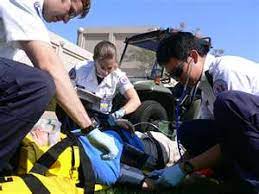
Use the form below to register for this course. A course coordinator will be in touch with you to assist you with your enrollment.
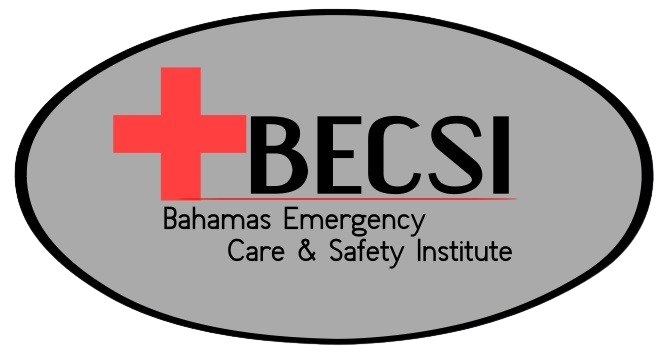
BECSI
An Authorized Emergency Care & Safety Institute Educational Center
Contact
- Nassau Bahamas
- +1 242 466 1787
- becsibahamas@gmail.com
Copyright Notice 2022-2024 – Bahamas Emergency Care & Safety Institute. All Rights Reserved.